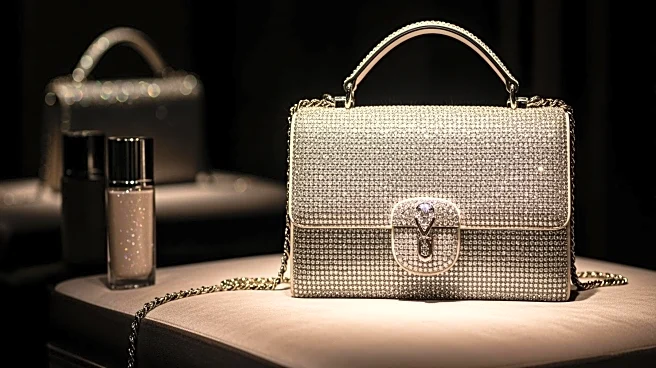What's Happening?
Kering, the luxury group that owns brands such as Gucci, Bottega Veneta, and Balenciaga, has reported a 10 percent decline in revenue for the third quarter. This announcement follows the recent sale of
its beauty division to L’Oréal for four billion euros, a move aimed at reducing the group's debt and accelerating brand development in the beauty segment. The sale includes a 50-year licensing agreement for Gucci-branded perfume and beauty products, set to commence after the current license with Coty expires in 2028. Gucci, which accounts for a significant portion of Kering's revenue and operating profit, has faced a challenging period with sales dropping by 18 percent in the third quarter, although this marks an improvement from previous quarters.
Why It's Important?
The strategic sale to L’Oréal is significant for Kering as it seeks to alleviate its debt burden and revitalize its fashion brands, particularly Gucci. By partnering with L’Oréal, Kering aims to leverage the latter's media presence and investment capabilities to boost its beauty segment, which could lead to increased brand visibility and sales. This move reflects a broader trend in the luxury industry where companies are diversifying their portfolios to include beauty products, which often have higher margins and broader consumer appeal. The outcome of this strategy could impact Kering's financial health and market position, potentially influencing investor confidence and stock performance.
What's Next?
The deal with L’Oréal is expected to close in the first half of 2026, marking a new phase in Kering's strategic direction. As the partnership unfolds, stakeholders will be watching closely to see how effectively Kering can integrate its fashion and beauty segments to drive growth. The expiration of the current license with Coty in 2028 will be a critical juncture, as it will determine the full impact of the new licensing agreement on Gucci's brand development. Additionally, Kering's efforts to revitalize Gucci amid declining sales will be crucial in maintaining its position as a leading luxury brand.
Beyond the Headlines
This development highlights the evolving dynamics within the luxury industry, where traditional fashion houses are increasingly venturing into beauty and lifestyle segments to capture new markets and consumer demographics. The partnership with L’Oréal could set a precedent for similar collaborations, emphasizing the importance of strategic alliances in enhancing brand value and market reach. Furthermore, the focus on beauty products underscores the industry's shift towards more inclusive and diverse offerings, catering to a wider range of consumer preferences and needs.









